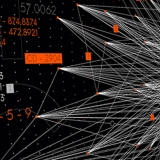EU context
Tvůrci politik potřebují poznatky, které jim pomohou řešit otázky, jako je účinná regulace, způsob zajištění sociální ochrany v nejširším slova smyslu a rovnoprávné zohlednění požadavků podniků, společnosti a jednotlivců při využívání obrovského potenciálu digitalizace.
Evropská komise přijala v roce 2015 strategii pro jednotný digitální trh v Evropě, kterou označila za jednu ze svých politických priorit. Tato strategie přispívá k vytváření digitálních příležitostí pro občany i podniky a klade si za cíl posílit vedoucí postavení EU ve světě v oblasti digitální ekonomiky. Usiluje o zlepšení přístupu k informacím, vytváření pracovních příležitostí pro osoby s odpovídajícími digitálními dovednostmi a transformaci veřejných služeb. Vzhledem k tomu, že ekonomika sdílení nabývá v celé EU na oblibě, Komise se snaží povzbuzovat rozvoj nových a inovativních služeb a zároveň zabezpečit přiměřená ochranná opatření. Sdělení Komise z roku 2016 s názvem „Evropský program pro ekonomiku sdílení“ objasňuje pravidla a politická doporučení v této oblasti pro občany, podniky a členské státy.
Činnost nadace Eurofound
Eurofound zkoumá širší důsledky rostoucího rozsahu a dosahu digitálních technologií pro trh práce z hlediska pracovních podmínek, pracovněprávních předpisů a dalších aspektů.
Zabývá se dopadem průlomových technologií v oblasti služeb na zaměstnanost. Eurofound zkoumá také vliv platformové ekonomiky, zejména tzv. crowd employment (najímání pracovníků na zakázku oslovením velké skupiny pracovníků prostřednictvím on-line platformy), na trh práce. Pokračuje rovněž ve výzkumu pracovních podmínek a podmínek zaměstnávání mobilních pracovníků využívajících informační a komunikační technologie.
V budoucnu se zaměří na charakter práce a zaměstnanost v digitální éře, přičemž bude zvláštní pozornost věnovat:
Hlavní příspěvky
Zpráva vypracovaná ve spolupráci s Mezinárodní organizací práce o možnosti pracovat kdykoli a kdekoli se zabývá vlivem práce na dálku a mobilní práce využívající informační a komunikační technologie na vybrané aspekty pracovních podmínek.
Série seminářů nadace Eurofound poskytuje vládám, odborům a zaměstnavatelům příležitost diskutovat o vývoji sociálních, zaměstnaneckých a pracovních politik EU. V roce 2016 se série seminářů nadace zaměřila na dopad digitalizace na práci a na vytváření vnitrostátních programů pro lepší provádění digitálních změn.



































